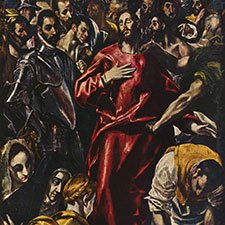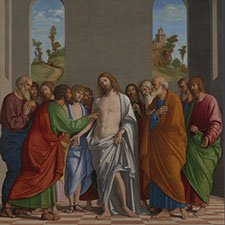Vine Black
Natural organic pigmentComposition and Properties of Vine Black
Vine black is a finely ground material obtained by carbonizing (charring) vine stalks or twigs and also vine lees (sediments of dead yeast and other residue obtained in the process of winemaking).
The pigment is very stable as are all carbon blacks, it is absolutely lightfast and compatible with all other pigments.
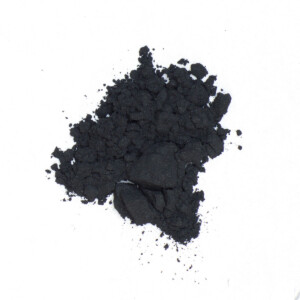
Pigment
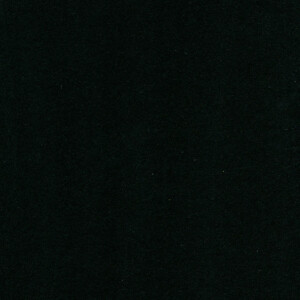
Painted swatch
Names
Color Index
PBk 8, CI 77268
Word origin
From Old French vigne “vine, vinyard” (12c.), from Latin vinea “vine, vineyard,” from vinum “wine,” from Proto-Indo-European *win–o– “wine”.
From Online Etymology Dictionary
Rebschwarz
German
Noir de vigne
French
Nero di vite
Italian
Negro de vid
Spanish
Preparation
Vine black can be prepared by carbonizing (charring) vine stalks or twigs and sometimes also vine lees (sediments of dead yeast and other residue obtained in the process of winemaking).
History of Use
Vine black has been in use since prehistoric times.
Examples of use
Cima da Conegliano, ‘Incredulity of Saint Thomas’, 1502-04
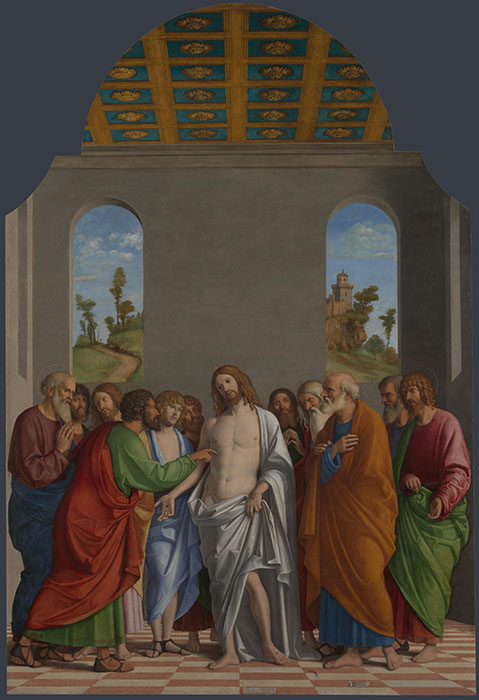
13 Grey drapery of Christ: The grey layer consists of vegetable black pigment (vine black and lead white. The surface is painted in warmer bone black mixed with white.
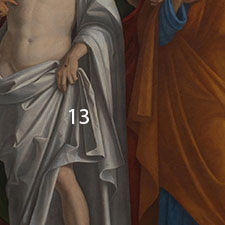
Identification
Fiber optics reflectance spectra (FORS)
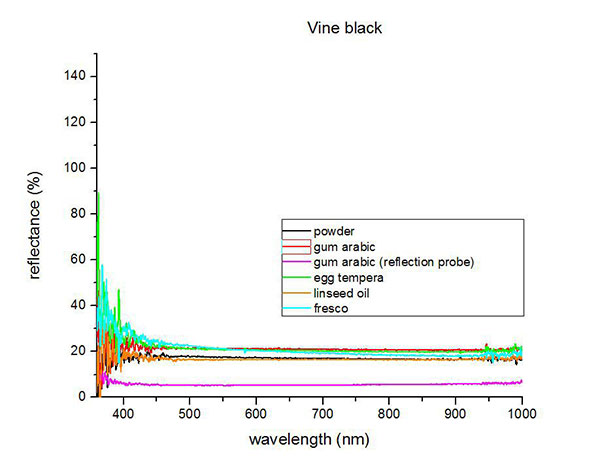
Spectra by A. Cosentino, Cultural Heritage Science Open Source (CHSOS)
Raman Spectrum
(1) Eugenia P. Tomasini, Emilia B. Halac, María Reinoso, Emiliano J. Di Liscia and Marta S. Maier, Micro-Raman spectroscopy of carbon-based black pigments, Journal of Raman Spectroscopy, Special Issue: Raman spectroscopy in art and archaeology, Volume 43, Issue 11, pp. 1671–1675, November 2012.
(2) Alessia Coccato, Jan Jehlicka, Luc Moens and Peter Vandenabeele, Raman spectroscopy for the investigation of carbon-based black pigments, Journal of Raman Spectroscopy, Special Issue: 11th International GeoRaman Conference, Volume 46, Issue 10, pages 1003–1015, October 2015. DOI: 10.1002/jrs.4715. Available as pdf.
X-Ray Fluorescence Spektrum (XRF)
XRF Spectrum in the Free XRF Spectroscopy Database of Pigments Checker, CHSOS website.
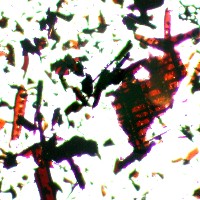
Microphotograph
image © Volker Emrath
Further Reading
References
(1) Winter, J. and West FitzHugh, E., Pigments based on Carbon, in Berrie, B.H. Editor, Artists’ Pigments, A Handbook of Their History and Characteristics, Volume 4, pp. 1-37.
(2) J. Winter, “The Characterization of Pigments Based on Carbon” Studies in Conservation, 28:49-66, 1983.
(3) S. Muntwyler, J. Lipscher, HP. Schneider, Das Farbenbuch, 2nd. Ed., 2023, alataverlag Elsau, pp. 160-165.

